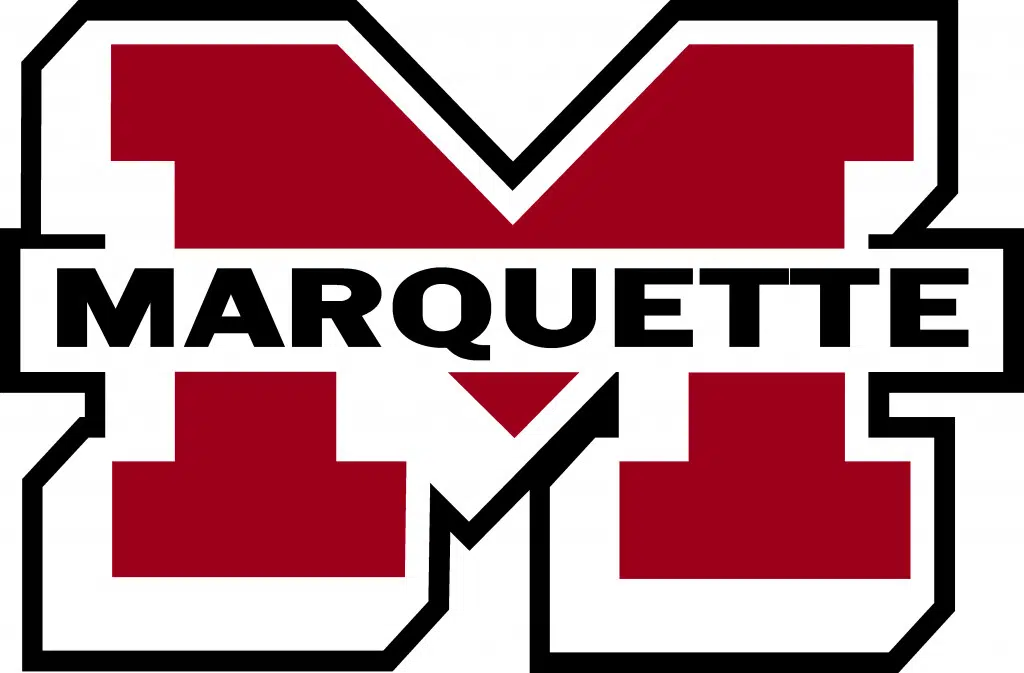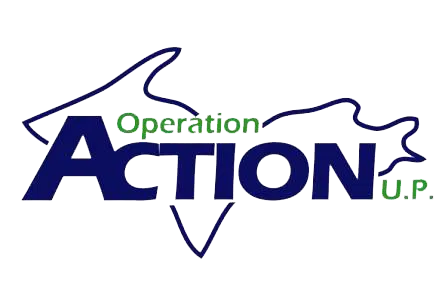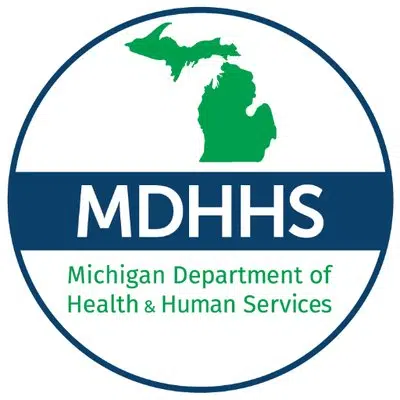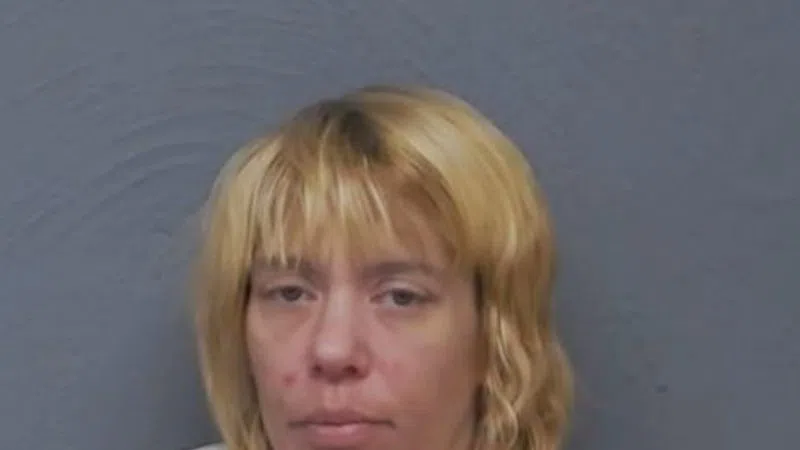A Marquette woman who claims to have a trademark on the Marquette Schools’ new “Sentinels” moniker may have a fight on her hands.
The district has hired a patent attorney who says they’ll counter Margaret Brumm’s claims in court and “at no financial cost to MAPS.”
Attorney David Casimir calls Brumm’s actions “a dangerous precedent that encourages others to abuse the trademark system as leverage in personal disagreements. His enitre statement, and it is lengthy, is posted below.
Brumm issued a brief response of her own Friday afternoon:
“I’ve been asked by multiple members of the local media for my response to Dr. Casimir’s press release on behalf of MAPS, dated 22 March 2024. I have read the three and a half page document. My comments are as follows: No Comment.”
The issue surrounds the Marquette School Board’s 2023 decision to do away with the longstanding “Redmen” and “Redette” sports nicknames. When the board decided on Sentinels as a replacement, Brumm joined those who wanted to preserve the old nicknames in opposition.
Besides trying to make the Sentinels nickname unavailable to the district for use, Brumm has also filed recall language against board members Jennifer Ray and Jennifer Klipp. There will be a clarity hearing in the Marquette County Probate Court on April 4.
Below is the lengthy statement from Casmir, the MAPS trademark attorney:
We are trademark counsel for Marquette Area Public Schools (MAPS). MAPS has asked us to provide a public statement regarding the trademark issues related to the Marquette Sentinels name raised by local resident Margaret Brumm.
We provide a summary of the trademark system, the ways it can be abused, and how the system defends against abuses. We describe the problems that we observed with Ms. Brumm’s actions and why we volunteered to assist MAPS, for free, in responding to Ms. Brumm’s actions. Lastly, we clarify how MAPS will respond to Ms. Brumm and why the community need not worry about Ms. Brumm’s trademark threats.
Trademarks help identify a product or service from a particular source and distinguish it from the products or services of others. When we buy a trademark-branded product (for example, Coca Cola®, Nike®, or Apple® products), we have an expectation that we know who the provider of the product or service is and that it is not a scam, knock-off, or inferior product or service offered by someone else. Trademarks protect the public by preventing confusion about the sources of goods and services, as well as protecting the value of the brands for trademark owners.
Trademark laws were developed in the United States, and around the world, to balance the interests of trademark owners and the public and to prevent abuse of the trademark system. To prevent people from tying up trademarks that they never intend to use, trademarks can only be registered if they are actually being used in real commerce – for example, actually selling items that show the brand.
It is improper to apply for a trademark in bad faith – that is, where the applicant has no bona fide intention to use the mark in commerce, but rather intends to harass or extort others or to interfere with the use of a brand by its rightful owner. Recognizing that bad actors may try to simulate a lawful intention to use a trademark in commerce, the rules do not credit token commercial activity conducted merely for the purpose of reserving a right in a trademark. A genuine intent to use the brand in commerce is required.
Rules and procedures have been created to discourage and penalize bad actors. For example, to federally register a trademark, the United States Patent and Trademark Office (USPTO) requires submission of a genuine “specimen of use,” which is evidence that demonstrates actual use of the trademark in commerce. It is improper, and can be deemed fraudulent, to use fake, digitally created, or otherwise misleading images intended to simulate actual use. The USPTO allows others to challenge and eliminate improper trademarks, such as those that are filed in bad faith.
Bad actors also face civil liability if they file lawsuits based on trademarks obtained using false or fraudulent statements or evidence. Further, both federal and state unfair competition laws may impose penalties on trademark bad actors, including substantial fines, injunctions, monetary damages, and a requirement to pay attorney fees, even where the defending attorneys work pro bono. As attorneys, we are not permitted to pursue bad faith trademarks or file or participate in bad faith lawsuits. Instead, we are charged to use our legal knowledge and positions within the legal system to act responsibly and ethically, and to prevent others from abusing their power and the legal system.
The slowness and high costs of our legal systems present an opportunity for bad actors to take advantage of others who do not have the time, resources, knowledge, or energy necessary to defend themselves. Bad actors can leverage these inefficiencies to get what they want. However, when there are resources available to mount a defense, history has shown that bad actors fail, sometimes catastrophically, including undergoing bankruptcy as a result of fines, civil damages, and attorney fees that can exceed hundreds of thousands to millions of dollars.
Our firm has volunteered to represent MAPS, for free, because we observed what we believe to be a bad actor improperly leveraging the trademark system to force their desired outcome. Bad faith trademarks are being pursued by Ms. Brumm, an attorney registered to practice before the USPTO, which appears to be at odds with her professional duties. Left unchecked, this type of behavior sets a dangerous precedent that encourages others to abuse the trademark system as leverage personal disagreements.
If Ms. Brumm continues to pursue her path, it will ultimately be up to the USPTO or judges/juries to decide whether Ms. Brumm’s trademarks were pursued or leveraged in bad faith. Based on the facts that we were aware of, we felt obligated to defend MAPS. Relevant facts of this matter are:
1) On January 8, the MAPS school board announced eight candidate brand names.
2) On January 16, the MAPS school board narrowed the selection to three candidate brand names: Marquette Reds, Marquette Red Jackets, and Marquette Sentinels.
3) On January 19, Ms. Brumm filed trademark applications for the Marquette Reds and Marquette Sentinels names, and on January 21, she filed a trademark application for the Marquette Red Jackets name for use on T-shirts. There is no conceivable basis by which Ms. Brumm can be said to have independently come up with these three names and started a T-shirt sales business in this time period.
In each of her filings, Ms. Brumm indicated commercial use of these trademarks “at least as early as 01/19/2024.” The specimens submitted with the Marquette Sentinel and Marquette Red Jackets applications, to show actual commercial use, appear to be digitally created images overlaying the two different names on an identical stock image of a white T-shirt. Forensic analysis confirmed that these are digitally created images and not photographs of genuine products showing commercial use of the mark, as is required for a good faith trademark filing.
4) On January 22, the MAPS school board announced Marquette Sentinels as the final selected brand name. On January 25, Ms. Brumm submitted a State of Michigan trademark application for Marquette Sentinels on clothing. The images of specimens attached to the filing are hand marked with the term “Actual T-shirt.”
Oddly, the tag on the specimen associates the name “Marquette Sentinels” with “Marquette Senior High,” suggesting that Ms. Brumm or someone else acknowledged that this is a MAPS brand, and not Ms. Brumm’s brand. There is no indication that Ms. Brumm filed state trademark application for Marquette Red Jackets o Marquette Reds, which is consistent with the fact that, by this point in time, MAPS had publicly indicated that it was not pursuing such names and that Ms. Brumm, accordingly, was no longer interested in these trademarks.
5) Ms. Brumm has made numerous public statements confirming that the intent of her trademark filings was to gain leverage against MAPS and was not for genuine commercial purposes, including:
“I am using the trademark issue to put pressure on MAPS Board to negotiate with me.” (January 26, 2024); and
“I am doing what I am doing to negotiate with the School Boar (sic) to change the name back to “Redmen”, poll the students and public for the next eight years to develop data as to if there really is a feeling that the name should be changed and that the Hockey announcer who was fired for using the name Redmen in the heat of a game should be rehired. That’s what this is about.” (March 19, 2024).
6) On February 4, Ms. Brumm filed a federal in-use trademark application at the USPTO for “Marquette Sentinels” in the field of educational services, which indicated a commercial use date of “at least as early as 02/04/2024.”
The specimen filed with the application, purporting to demonstrate commercial use, was a Facebook post advertising a future talk that Ms. Brumm was planning on giving on February 29, which is an improper specimen for demonstrating use as early as February 4.
7) On February 5, Marquette High School distributed shirts to their students displaying a block-M design containing the name Sentinels. On that same day, a photograph of one of these shirts was posted on a Facebook Group page along with the text, “The High School gave all students and staff these today.”
On February 6, Ms. Brumm filed an in-use trademark application with the USPTO for the same block-M design. The specimen attached to the filing was not a design created by Ms. Brumm, but rather was a cropped image of the photograph posted on Facebook showing the MAPS shirt that was provided to its students. Ms. Brumm also filed a similar State of Michigan trademark application on February 6.
8) Also on February 5, we filed an in-use federal trademark application on behalf of MAPS for the name Marquette Sentinels for educational services. We also filed an intent-to-use application related to a range of school-related products, including clothing. We further filed an intent-to-use application covering the block-M design a day before Ms. Brumm’s filing for all of these fields.
We followed-up with an additional block-M design on February 7. Lastly, on February 5, we filed a State of Michigan trademark application for the name Marquette Sentinels in the field of educational and entertainment services. The State of Michigan trademark registered February 16.
School districts do not normally file trademark applications because they do not normally need to worry about others trying to interfere with their brand use. In this instance, we filed these applications on behalf of MAPS to memorialize MAPS’s ownership of these brands and to prevent future attempts by Ms. Brumm to interfere the district’s rightful use of the brands, after Ms. Brumm’s current filings are rejected or cancelled.
We understand that there are strong opinions and feelings about the school district’s rebranding campaign. Ms. Brumm and others in the community have a variety of ethical and legal ways to communicate their displeasure. Pursuit of bad faith trademarks, filing lawsuits based on bad faith trademarks, or any other improper, unethical, or illegal actions are not appropriate or viable paths.
MAPS intends to proceed with its Marquette Sentinels brand and will not negotiate with Ms. Brumm under her trademark threats. Should Ms. Brumm unwisely choose to take action against MAPS, our firm has been engaged and authorized to fully defend MAPS, including using, where appropriate, any and all of the legal protections available to discourage misuse of the trademark system.
MAPS would like the community to know that the Marquette Sentinels trademark brand is rightfully owned and used by MAPS and that there is no threat to the community from Ms. Brumm. If Ms. Brumm chooses to take action, it will be against MAPS and not community members. MAPS is well positioned, at no financial cost to MAPS or to the, community, to address these issues.
David Casimir, JD, Ph.D.CASIMIR JONES, S.C






















Comments